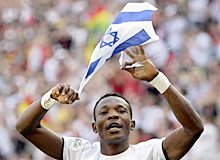Reading and Prior Knowledge
One of the students I tutor just completed tenth grade. He wants help with writing so that he's prepared for the ACT. We've been working on his writing, both basic skills and style. Since he is almost an adult I can talk to him about things that don't make sense to an elementary school student. One of the things we discussed is the fact that except for car magazines, he spends no time reading. In order to write well, one must read.He asked, so I gave him a short list of recommended books. The book he checked out of the library is Mark Twain's, Life on the Mississippi. I asked him to write about the first couple of chapters that he read. I read what he wrote, and it was obvious that he didn't understand what Twain wrote. I went back to reread the book, and discovered two things. The first is Twain's sense of humor and story telling. When he's giving a history of the Mississippi River over the first two chapters, it's not just a list of facts. It's anecdotes wrapped in sarcasm, with a bit of tall tale added. My student didn't get the jokes. Twain, in order to give historical perspective of the voyages of De Soto and LaSalle, who both traveled the Mississippi, De Soto, being the first European to do so, places other historical personages in the narrative. I assume any educated person living during Twain's time would know Shakespeare, Henry VIII, Luther, Rabelais, Oliver Cromwell, Cervantes, in addition to knowing events like the Spanish Inquisition and the council of Trent. Twain uses all of these and more as historical markers.
My student hadn't heard of any of these people or events. So now there is the problem of prior knowledge. As much fun as Twain is to read, you have to know a bit about American and European history. When Twain writes,
Henry VIII . . . was getting . . . his harem effectively started.it makes no sense unless you know a bit about the six wives of Henry VIII, whether from a history class or from listening to Rick Wakeman's record. He did a little bit better with chapter IV, which was about Twain's childhood, but had to read it over twice. When I asked about his history education so far, he mentioned the Civil Rights Movement, Holocaust, and a few other politically correct tidbits from the previous century. From other research, this is standard in public schools. Others have commented on it, and yes, it shows an absurd lack of understanding by our education "experts" about what children should learn.
Adding to the "dumbing down and proud of it" attitude is the Michigan Education Association. They honored three Michigan teachers with "Human Rights honors". These three may be brilliant teachers. I don't know what goes on in their classrooms. However-
Bragg wants his students—who were born more than 30 years after the U.S. Supreme Court ruled that segregation in public schools was unconstitutional—to understand and appreciate the roles they play in an evolving global society.That doesn't sound like teaching to me. That sounds like an agenda.
“Sadly, if we’ve been born in America, I don’t think anybody can escape race and prejudice,” says Bragg, who started teaching in Coloma about 24 years ago. “If we can’t live in harmony here, how can we hope to live in harmony with peoples from other parts of the world with different cultures?”
“Diversity to us means much more than race or ethnicity,” Arnold explains. “It’s so much more than that. It’s age. It’s disability. It’s sexual orientation. It’s mental health issues. It’s diversity of thought. There are so many dimensions to diversity. We’re really proud of how we define diversity here.”If there really is diversity of thought, it would be unique in the diversity racket.
“Our children are the totality of our future,” Peters says, adding that troubling disparities persist between children of color and white children. She believes that society must address these gaps—and work hard to eliminate them.Nowhere is education actually mentioned as important. And by education I mean giving students the skills they need to become a productive American citizen, to understand why and how this country works, to appreciate how fortunate they are to be a citizen of the greatest country on Earth, to be able to read, understand, and enjoy authors like Mark Twain, to be able to succeed economically, on their own, without government help, to raise a family, and to want to help those who are less fortunate, not those who are lazy but expect a handout because they belong to a racially or ethnically approved "oppressed" group.
“When we talk about issues of equality or civil rights and human justice, in all measures of child well-being, there are disparities along racial and ethnic lines,” Peters says. “The strongest potential for addressing the inequalities that plague us as a society lies with our children.”
Did I forget anything?
Labels: books, diversity, education, human rights, Mark Twain

 CHALLAH AKBAR
CHALLAH AKBAR











3 Comments:
Harry No you did not forget anything.
I would like to link your post on Pen of Jen is that ok?
I must say that I am not surprised, and I am so happy that I home school.
Jennifer
Link away. You are absolutely welcome to link to this post, and I thank you for the link.
I wish I could say that I was surprised.
Excellent! This was the post that Pen of Jen wanted us to read!
Post a Comment
<< Home